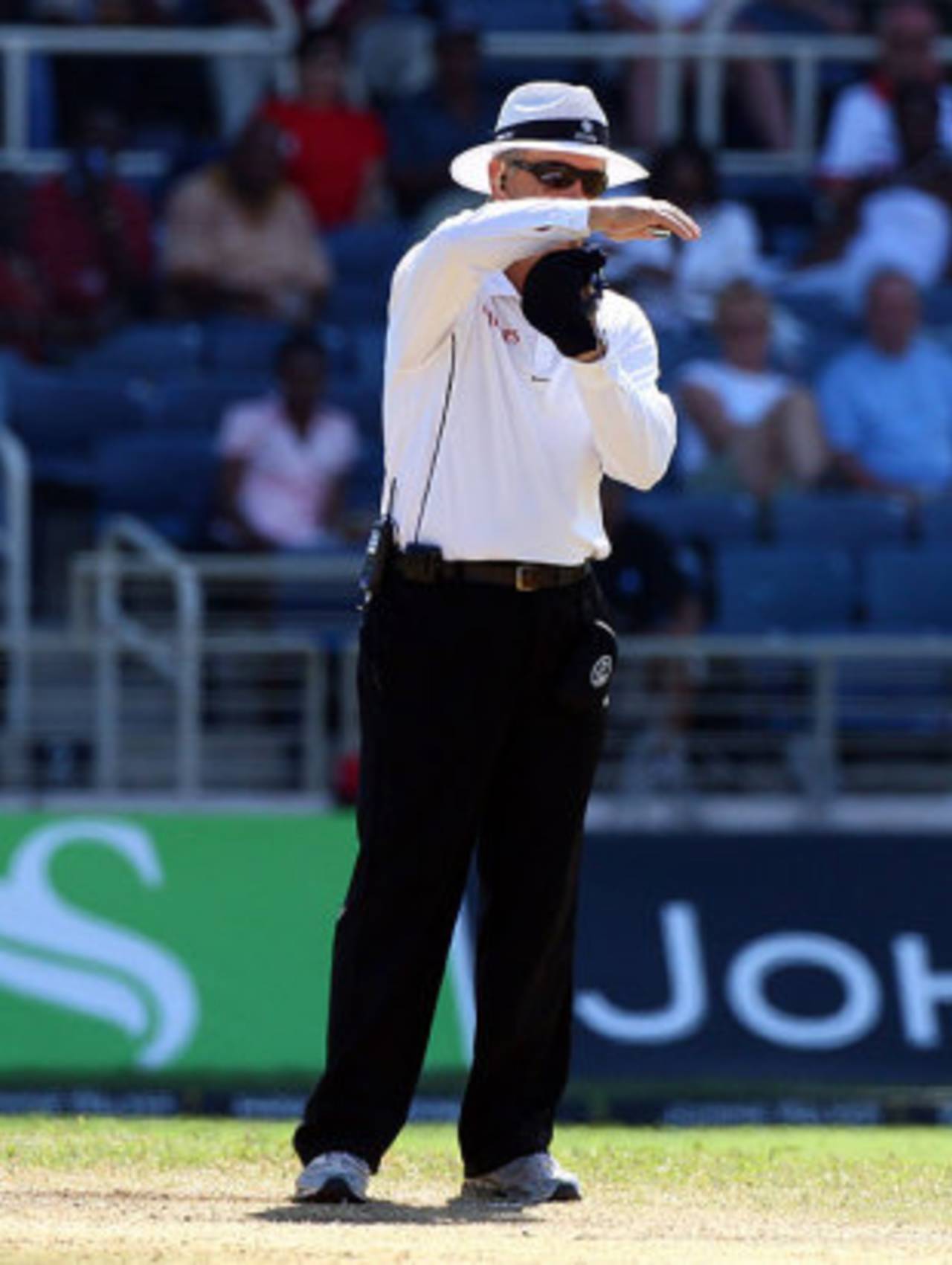The ICC Cricket Committee, after its annual meeting at Lord's, has recommended that the Umpire Decision Review System (UDRS) be implemented in the 2011 Word Cup in the subcontinent and introduced "as soon as possible" in all Test series. The committee, chaired by former West Indies captain Clive Lloyd, also decided to revisit laws that were pitted against the fielding side: it said the practice of the non-striker backing up while the ball was being delivered should be discouraged, as should batsmen changing their grip before the bowler entered his delivery stride.
The most significant decision concerned the UDRS, whose implementation since its introduction in July 2008 has been inconsistent in terms of series where it has been used. Now, though, the ICC committee has called for it to be introduced "as soon as possible" in all Test series. It has also recommended that the system be used throughout next year's World Cup in India, Bangladesh and Sri Lanka, with the same limit of two referrals per innings as in Tests.
That would, however, be subject to agreement with ICC's broadcaster partners ESPN Star Sports, who would have to bear the cost of implementing the system.
The committee also recommended introduction of a minimum standard of technology, such as ball tracking technology, including in the third umpire room, and annual reviews of technology and equipment.
The system has received mixed reviews from players and umpires. It landed in
controversy during the Johannesburg Test between England and South Africa in January 2010, when a caught behind appeal was turned down by the third umpire Daryl Harper. In a bid to eliminate any inconsistency, the ICC decided it had to meet with all broadcasting companies in a bid to standardise the use of technology, and
hosted a workshop earlier in the year.
David Morgan, the outgoing ICC president, had said that day-night Test matches were a
possibility in the near future with India and Australia as potential hosts. The ICC, while examining ways in which these games would be played out, stated the matter required further discussion.
The ICC also agreed to examine the law that permitted non-strikers to back up too far while the ball was being delivered, giving them an
unfair advantage in an attempt to complete a run. "ICC Cricket Committee agreed that batsmen trying to steal ground when the bowler is running in to bowl should be discouraged. They will look at regulations that require a batsman to remain in his crease until the bowler's front foot lands."
With regards to the switch-hit, the ICC said that a bowler reserved the right not to bowl if he saw the batsman change his grip before entering his delivery stride. "Should the bowler see a batsman change his grip or stance prior to the delivery stride the bowler can decide not to bowl the ball." The switch-hit had been given an
all clear by the MCC - the guardian of the laws of cricket- in 2008.
